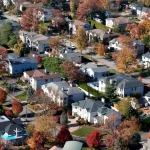EXCLUSIVE — Parents Defending Education has launched a speech code tracker for public school districts, highlighting the “anonymous snitch systems” that “stifle free speech” at the K-12 level.
The tracker already found speech codes in 115 districts operating in 4,565 schools across the country, affecting just under 2.5 million students in 22 states and the District of Columbia.
NEW COLLEGE OF FLORIDA FACES HOUSING SHORTAGE AND LIBERAL REVOLT AFTER DESANTIS ‘EXPERIMENT’
Bias response systems, the style of speech codes in question, are well known at the college and university level for having a “chilling effect” on free speech, as several courts have found in legal challenges to them.
“Bias response systems chill student speech, and that is by design,” Parents Defending Education President Nicole Neily told the Washington Examiner. “Under these programs, students credibly fear being reported for saying anything — any time, anywhere — and consequently, self-censor out of an abundance of caution.”
The stated purpose of the codes is to root out discrimination and hate speech by encouraging students to report incidents that they hear. While the definition of “bias” and the operation of the systems can be different among school districts, they generally invoke “microaggressions” and “everyday acts” that could be interpreted in a variety of ways.
As the left-wing organization the Southern Poverty Law Center describes in its “Responding to Hate and Bias at School” paper, the “issue is less about intent — who can know for certain why someone is does something? — and more about impact.”
“If, for example, they allow a bigoted comment to go unchecked, they are offering tacit approval of similar comments,” SPLC’s paper, published under their “Learning for Justice” project, continues. “No matter the intention, these messages and behaviors can cause fear, damage and injury to individuals and the entire school community.”
One of the primary criticisms of bias response teams is that they condition people, in this case, school children, not to speak openly about their opinions or fear retribution and administrative action if an anonymous person perceives it to be offensive.
Parents Defending Education’s tracker highlights some examples of the systems at school districts, including the Acalanes Union High School District in California, which has an anonymous reporting system “for students to report incidents of harm — acts of racism, bias, sexism, microaggressions, etc.”
While the district insists it is “not the thought or speech police,” its definition of “microaggression” is broad and includes “the everyday verbal, nonverbal, and environmental slights, snubs or insults whether intentional or unintentional which communicate hostile, derogatory, or negative messages to target persons based on their membership in historically marginalized group membership.” The Washington Examiner reached out to the district for comment.
Reporting appears to have taken root at Monroe County Community School Corporation in Indiana, where students can apply to be a “Student Equity Ambassador” to create the district’s anti-racism policy.
One student who responded to a question as to why she would want to be an ambassador said, “As a female, I can bring the point of view of being a societal minority, however, I do want to be honest that as a middle-class Caucasian I am in a place of immense privilege.” The Washington Examiner reached out to the corporation for comment.
Schools in the entire state of New Mexico have bias reporting systems after a 2021 bill, the Black Education Act, was signed into law.
The bill requires “racial sensitivity and anti-racism training or professional development for school personnel” and establishes a statewide “Anti-Racism/Anti Oppression Hotline,” which is “available for students, families, staff, community members, and other stakeholders to report school-based incidents of racism.”
CLICK HERE TO READ MORE FROM THE WASHINGTON EXAMINER
Neily said these schools are setting themselves up for litigation.
“These districts forget, however, the speech that they want to discourage is constitutionally protected and that violating students’ First Amendment rights is a surefire path to a federal lawsuit,” she concluded.





